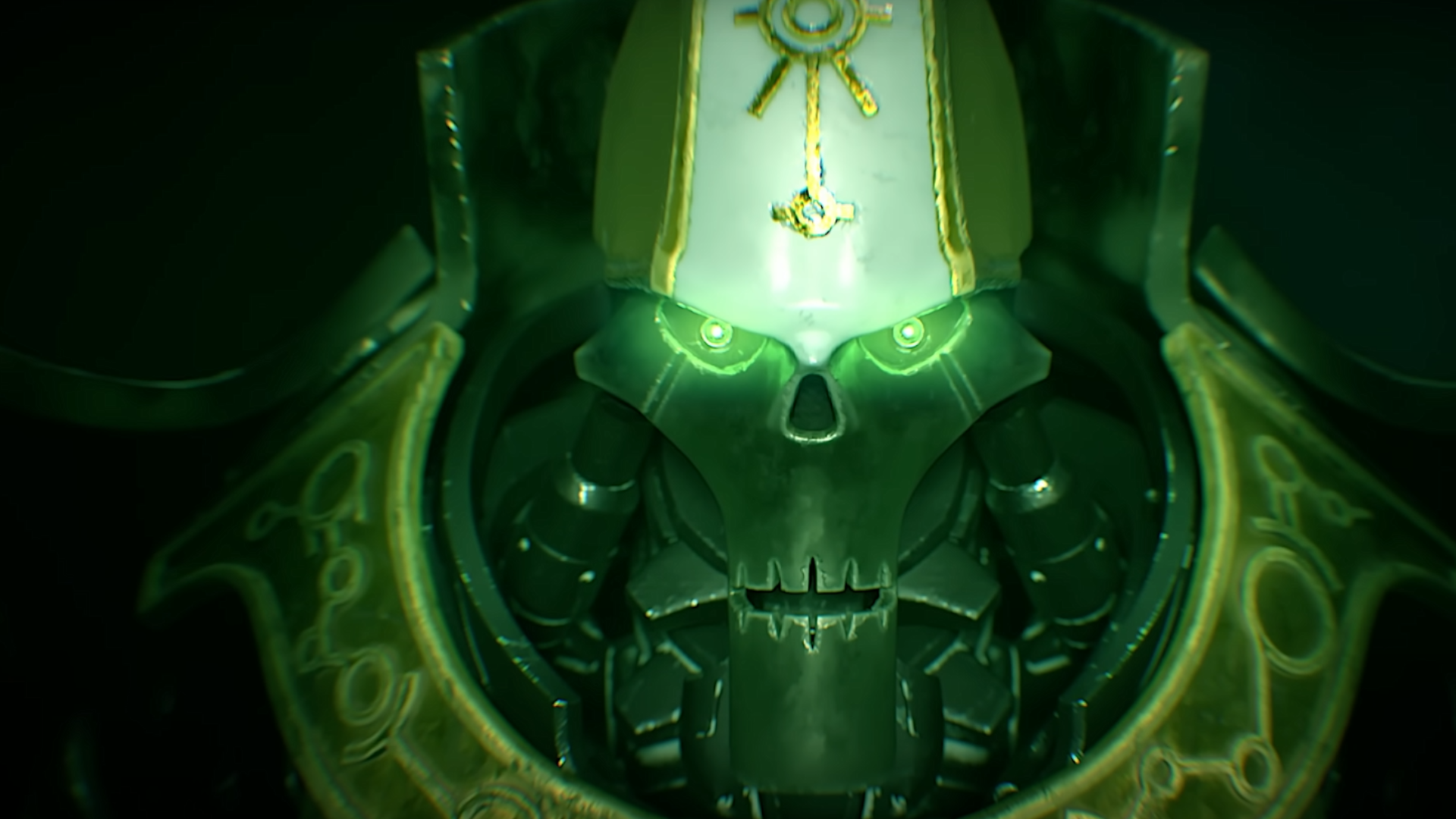Warhammer 40,000: Mechanicus 2's revamped Cognition system is incredibly clever, bridging the gap between wargame vets and tactics fans
Work smarter, and harder.

At the start of a short Warhammer 40k: Mechanicus 2 preview I attended at Gamescom last week, I was a smidge concerned. I'm not a wargamer, I've never painted a miniature, and I only break out my tape measure when I need to put a shelf up.
Despite my comfort with TTRPG systems, there was a part of my brain that was worried I'd be lost in the dark—I was relieved to find myself picking up what the game was putting down quite quickly, even while watching a developer play it second-hand, thanks to a cleverly-refurbished mechanic that helped me read between the lines of code.
Warhammer 40k: Mechanicus 2 follows two central campaigns—one shadowing the Necrons, robo-skeletons who have been napping for millions of years, and the Adeptus Mechanicus, a permitted cult within the human Imperium of Man that praises the machine god, with about as many mechanical augmentations stuffed into them as you'd expect. There are a few noted upgrades when compared to the first game, such as a wider range of environments, a cover system, and less obfuscated narrative events.
I can't speak to the exact crunchiness of these improvements or how they slot into the whole, given the turn-based tactics genre requires time to steep and stew in my brain to get a proper critical opinion going—rather than a swift, hands-off preview on a busy convention floor. There's only so much you can talk about a fresh coat of paint on a car before you get behind the wheel and get some miles in, yourself.
What did leap out to me, however, was its revamped Cognition system. Which, like the beauty of a simple machine, is both smart and straightforward enough to have grabbed my attention.
For context: Cognition was, in the first Mechanicus game, a resource which you would use to do things like fire certain weapons, trigger abilities, and extend your movement. Typically, this was gathered by interacting with map elements or sending your servo-skulls to collect intel.
In Mechanicus 2, however, every unit has a unique way of collecting Cognition for your crew—for example, your Servitor units (beefy, mindless drones created by stuffing a bunch of tech into a meat puppet) give you Cognition whenever you use them to soak up damage. Other units give you cognition by completing similar objectives, such as shooting enemies outside a minimum distance.
Keep up to date with the most important stories and the best deals, as picked by the PC Gamer team.
This is a brilliant bit of game design, because it helps to bridge the gap between those unfamiliar with the series (me, for shame) and Warhammer 40k vets who know each unit's general role like the back of their cybernetic claw. It's essentially a mini-tutorial baked into every unit's core mechanics. The Necrons have access to a different mechanic, named Dominion, which produces different effects—but more-or-less achieves the same goal.
Despite a lack of knowledge that would have me tried, executed, and potentially turned into a Servitor, Mechanicus 2 looks just as complex as its predecessor while also being far less intimidating for newcomers—which, much like the meeting of machine and flesh (praise the Omnissiah) is the best of both worlds.

Harvey's history with games started when he first begged his parents for a World of Warcraft subscription aged 12, though he's since been cursed with Final Fantasy 14-brain and a huge crush on G'raha Tia. He made his start as a freelancer, writing for websites like Techradar, The Escapist, Dicebreaker, The Gamer, Into the Spine—and of course, PC Gamer. He'll sink his teeth into anything that looks interesting, though he has a soft spot for RPGs, soulslikes, roguelikes, deckbuilders, MMOs, and weird indie titles. He also plays a shelf load of TTRPGs in his offline time. Don't ask him what his favourite system is, he has too many.

